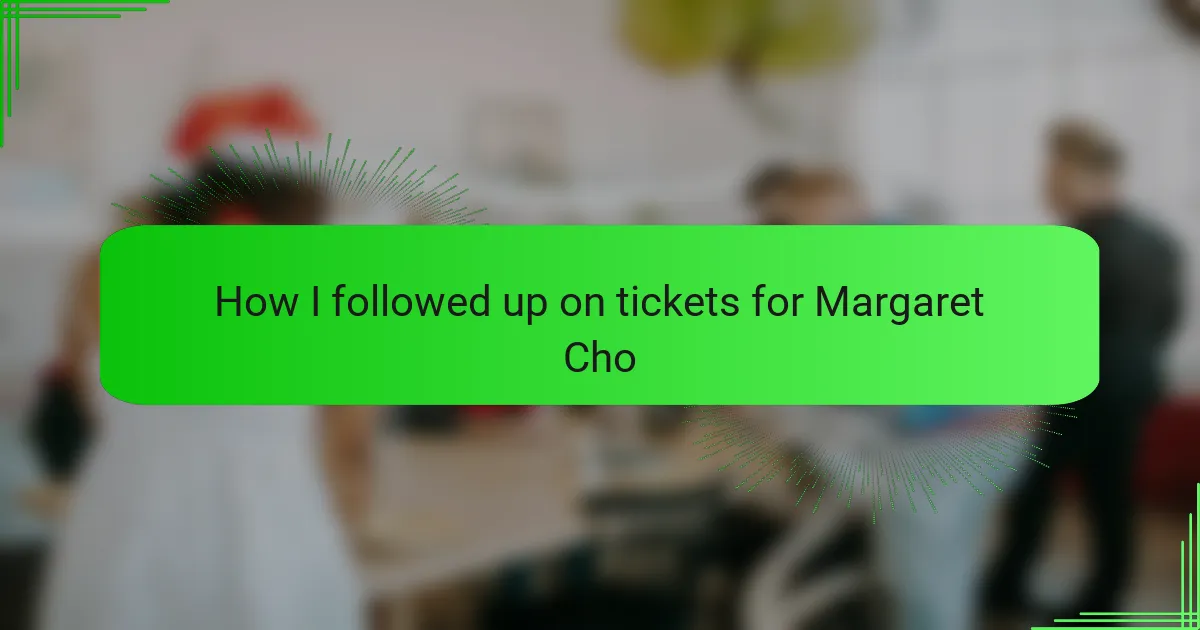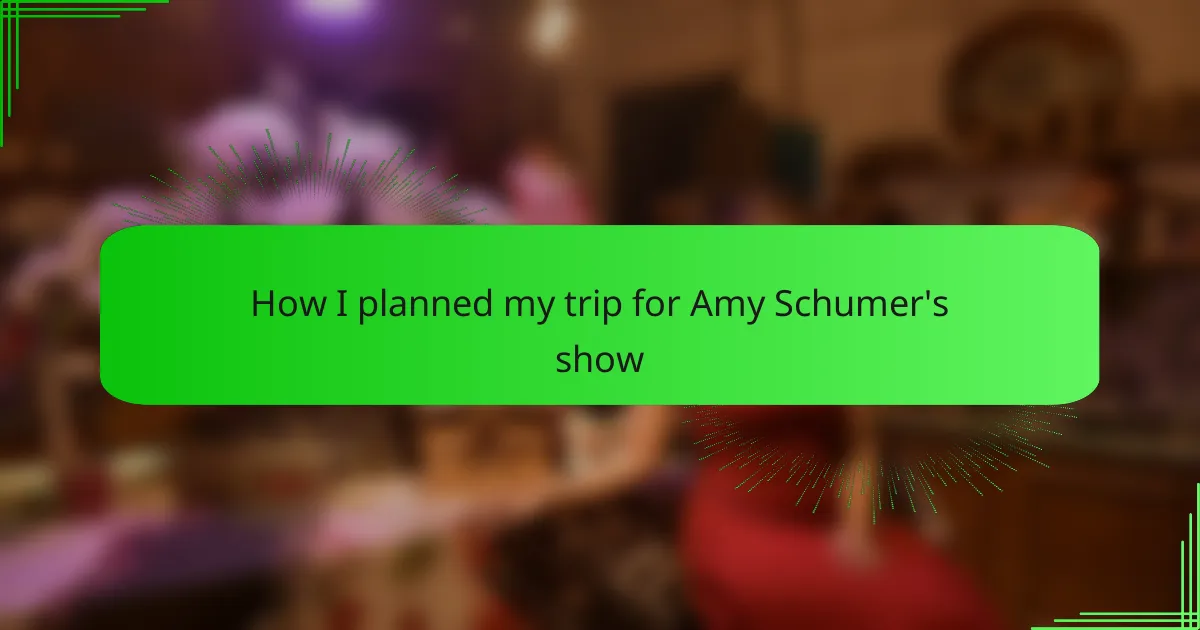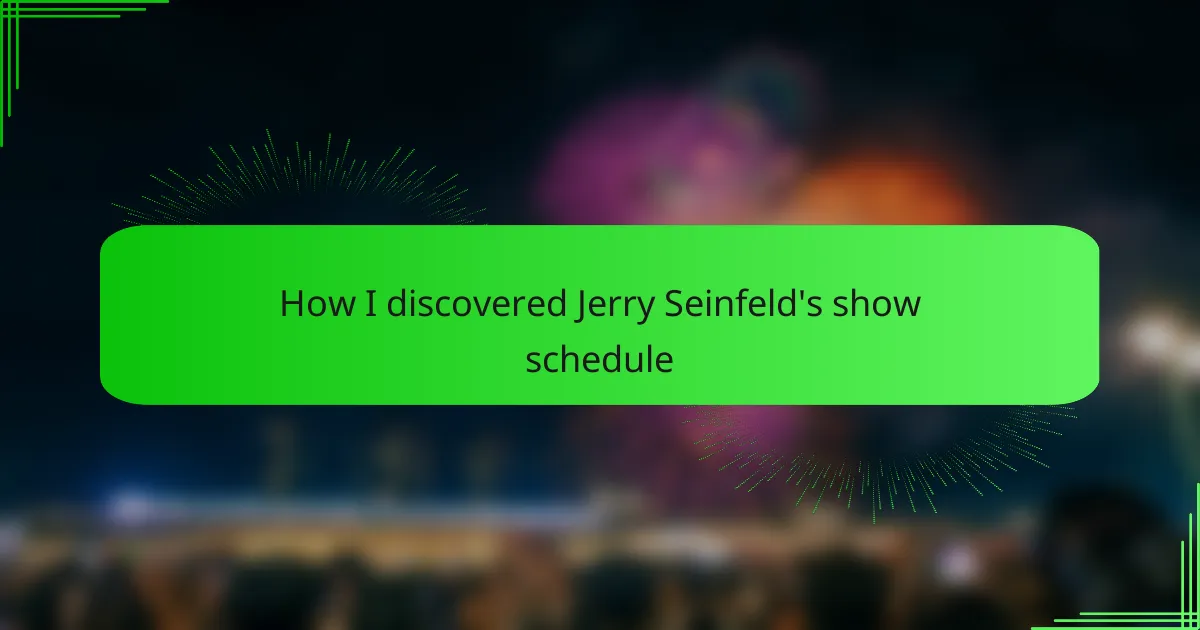Key takeaways
- Utilize diverse promotion strategies, including social media engagement and traditional advertising, to connect with fans effectively.
- Personal engagement through follow-ups fosters a loyal audience and enhances ticket sales, making attendees feel valued.
- Best practices for ticket follow-ups include clear communication, courtesy, and using multiple channels for inquiries.
- Staying organized with tools like spreadsheets and calendar apps can streamline ticket tracking and improve communication efficiency.
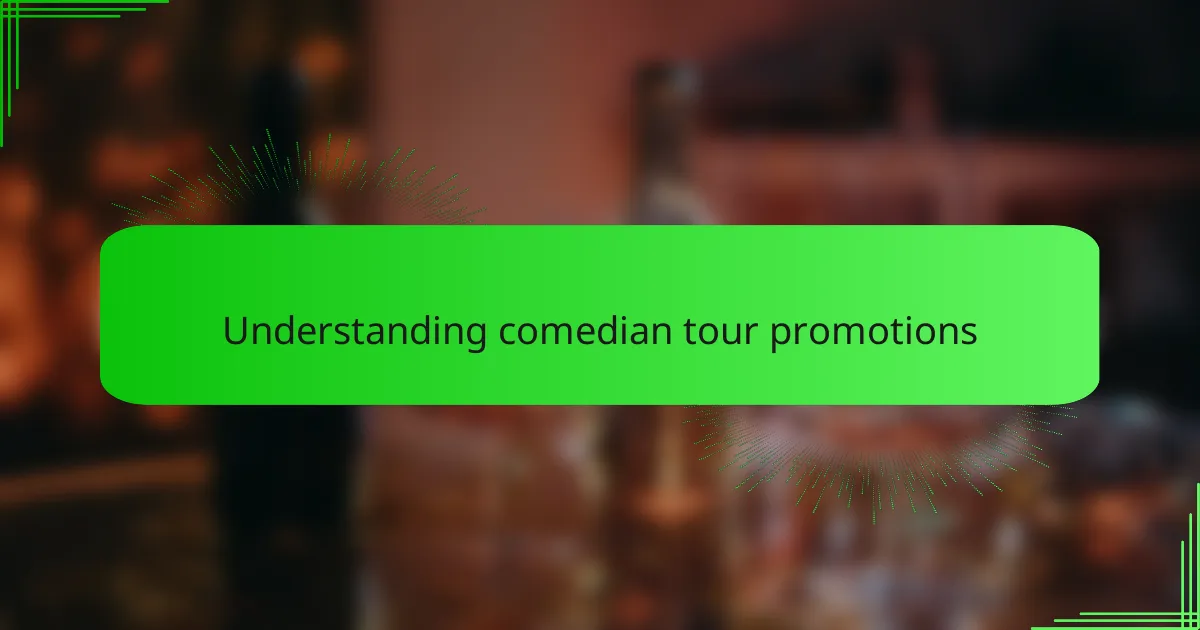
Understanding comedian tour promotions
Understanding comedian tour promotions is essential for fans eager to catch their favorite performers live. I remember the excitement I felt when I heard that Margaret Cho was touring; I was determined to secure tickets. The thought of seeing her blend of humor that speaks to so many experiences was exhilarating.
Promotion strategies can vary widely, from social media campaigns to traditional advertising. Have you ever noticed how a comedian’s social media presence can feel so personal? Engaging posts can foster a connection, making fans feel like they’re part of the journey, not just attendees of a show.
In my experience, timing plays a crucial role in snagging those sought-after tickets. I’ve learned the hard way that waiting too long can mean missing out. By staying informed and responsive to promotions, fans can ensure they don’t miss the chance to laugh along with their favorite comedians.
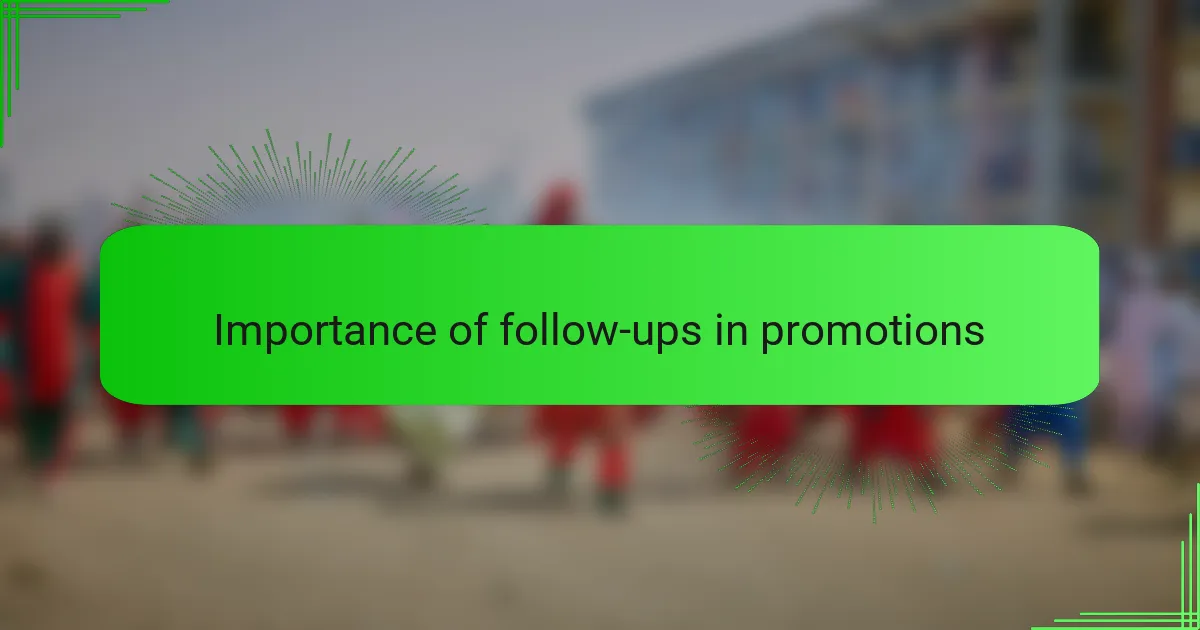
Importance of follow-ups in promotions
Following up on tickets for a popular comedian like Margaret Cho can make a significant difference in promotion efforts. When I first reached out about my tickets, it felt like a leap of faith; I was eager to secure my place but uncertain about the response. That initial follow-up not only reassured me but also created an ongoing dialogue, showcasing the importance of keeping that connection alive.
Personal engagement can elevate ticket sales and foster a loyal audience. For me, each follow-up felt like a step closer to building a community. It’s about more than just securing seats; it’s about making potential attendees feel valued and integral to the experience. In the fast-paced world of promotions, a friendly reminder can spark interest and attendance.
| Follow-Up Type | Impact on Promotions |
|---|---|
| Email Cast | Personal and informative, increasing engagement |
| Phone Call | Creates a personal touch, fostering loyalty |
| Social Media Check-ins | Boosts visibility and encourages sharing |
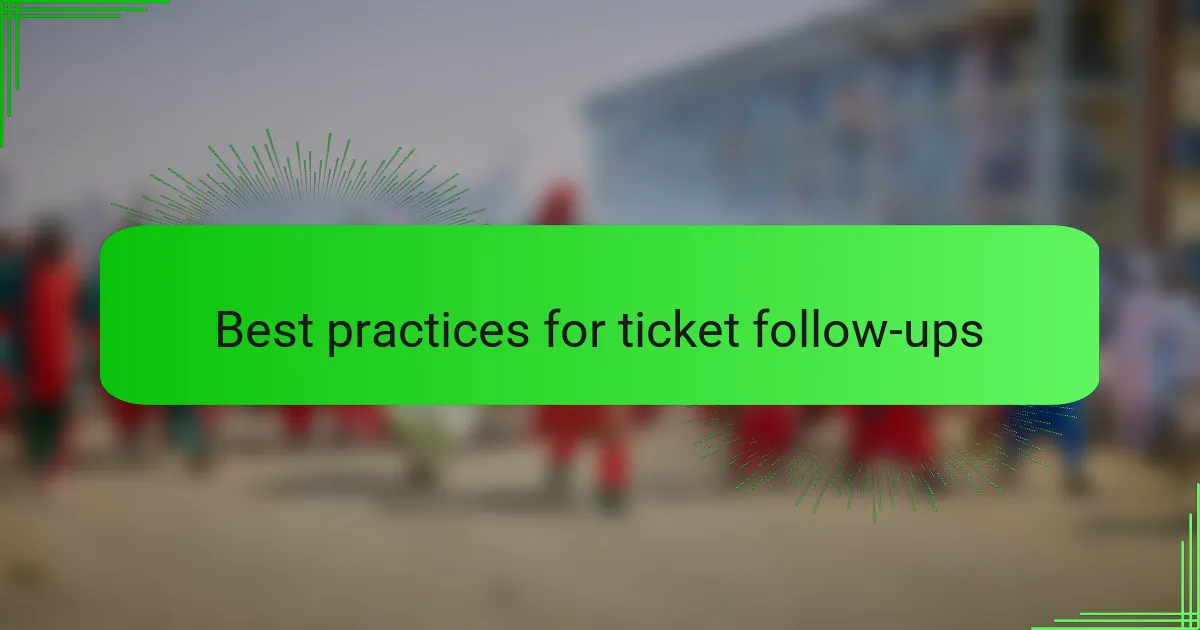
Best practices for ticket follow-ups
Following up on tickets for a show can feel a bit daunting, but I’ve found it can also be quite insightful. When I reached out to the venue about my tickets for Margaret Cho’s show, I wanted to ensure everything was set for a fantastic night. My heart raced a little while I awaited their response, as I was eager to see if my seats were in the right location.
Here are some best practices for ticket follow-ups:
- Keep your communication clear: When reaching out, be specific about your request. State your order number and the event date to avoid confusion.
- Be polite and patient: A respectful tone goes a long way. Understand that the staff is busy, and a little kindness can make your inquiry stand out.
- Use multiple channels: If you don’t get a response via email, try calling or reaching out through social media. Different avenues can yield quicker replies.
- Check for updates: Regularly check the promoter’s website or ticket platform for any announcements regarding the event.
- Document your interactions: Keep a record of your communications – dates, times, and responses can be helpful if issues arise later.
By blending practicality with a personal touch, your chances of a successful follow-up can increase significantly.
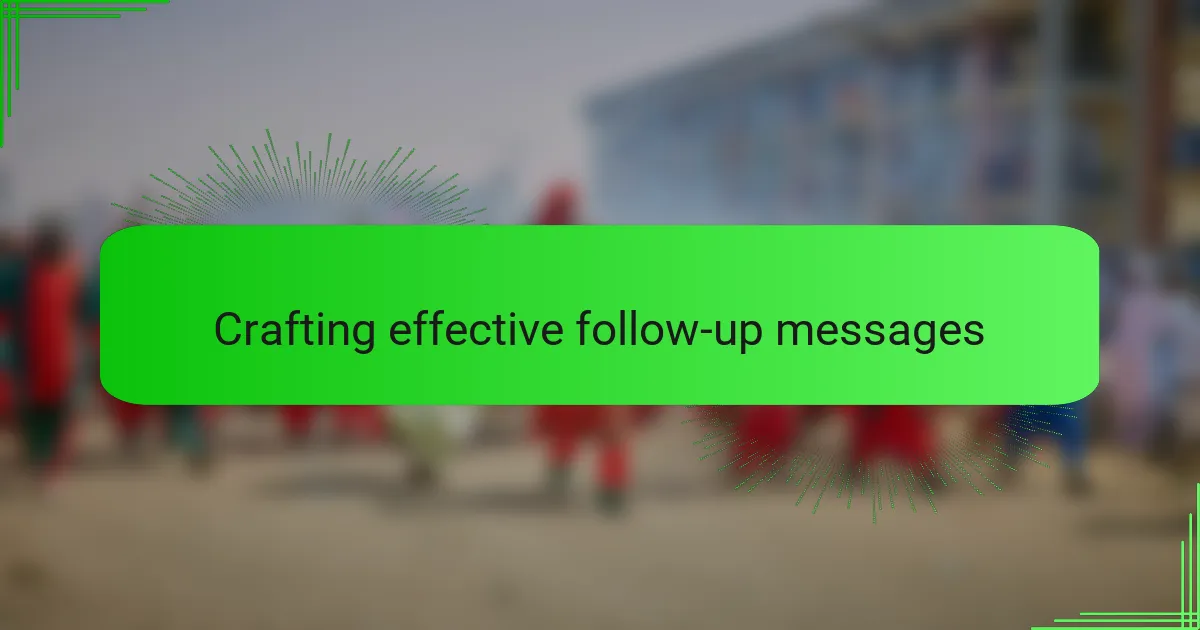
Crafting effective follow-up messages
Crafting effective follow-up messages is all about clarity and connection. When I reached out to the box office about my tickets for Margaret Cho, I was direct yet friendly. I made sure to include my order number and the event date, which helped eliminate any confusion right off the bat. Have you ever felt the anxiety of waiting for a reply? A well-crafted follow-up can ease that tension.
Being polite makes all the difference in the world. I remember drafting my message, taking care to express gratitude and understanding for the busy staff. It’s amazing how a little kindness can encourage a more engaging response. Have you considered how a respectful tone could open more doors for dialogue?
Lastly, I found that mixing up my communication channels was key. One day, I didn’t hear back from an email, so I decided to send a quick follow-up on social media. In my experience, different avenues often lead to quicker replies. Have you thought about how adapting your approach might improve your chances of a timely response?
![]()
Tools for tracking ticket inquiries
When I was following up on tickets for Margaret Cho, I quickly realized that staying organized was key. The influx of emails and social media messages about ticket inquiries can be overwhelming. I relied heavily on a combination of digital tools that not only streamlined communication but also helped me keep track of all potential leads and dates, making the entire process much more manageable.
Here are some tools I found particularly helpful for tracking ticket inquiries:
- Spreadsheet Software: I used Google Sheets to create a simple tracking document. It was easy to update and share.
- Email Management Tools: Tools like Mailchimp helped me organize bulk responses and follow-ups, keeping everything professional.
- Social Media Management Apps: Hootsuite allowed me to monitor messages and comments across platforms without getting lost in the noise.
- Calendar Apps: Setting reminders on my phone ensured I never missed a follow-up date or inquiry response.
- Note-Taking Apps: Using something like Evernote for jotting down insights or questions from fans kept my thoughts organized.
These tools not only made the process smoother but also provided a sense of accomplishment every time I saw an inquiry turn into a ticket sale.
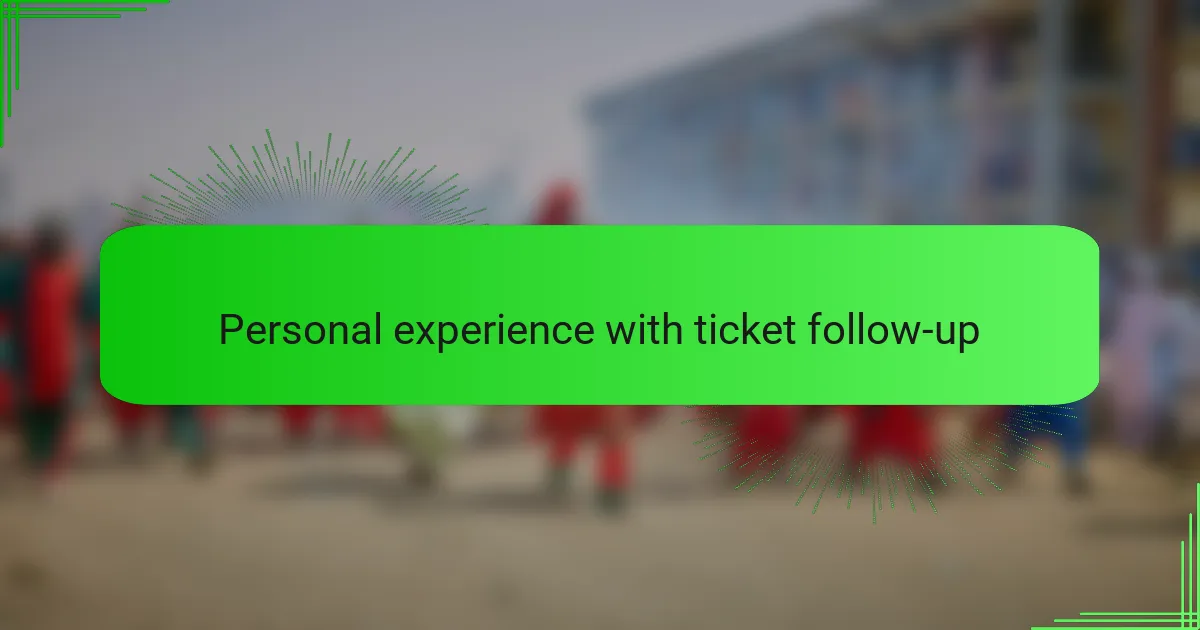
Personal experience with ticket follow-up
When I followed up on my tickets for Margaret Cho, I found myself balancing excitement with a touch of anxiety. I remember composing my email with a mix of hopefulness and nervous anticipation. Would they respond quickly? Would I get the answers I needed? That feeling of hitting “send” was both exhilarating and nerve-wracking.
I still recall the moment I received their reply. It felt like a small victory; the confirmation reassured me that my effort wasn’t in vain. I learned that a little persistence pays off in the world of ticketing. Did you know that maintaining that dialogue helps foster a sense of community? It’s not just about getting access; it’s about feeling connected to the event and the performers.
The experience of following up reminded me of the power of communication. Each inquiry felt like I was building a bridge—not just for myself but for others eager to join the experience. I often wonder if my enthusiasm resonated with the staff on the other end. After all, we’re all just fans looking for a good laugh and unforgettable memories.
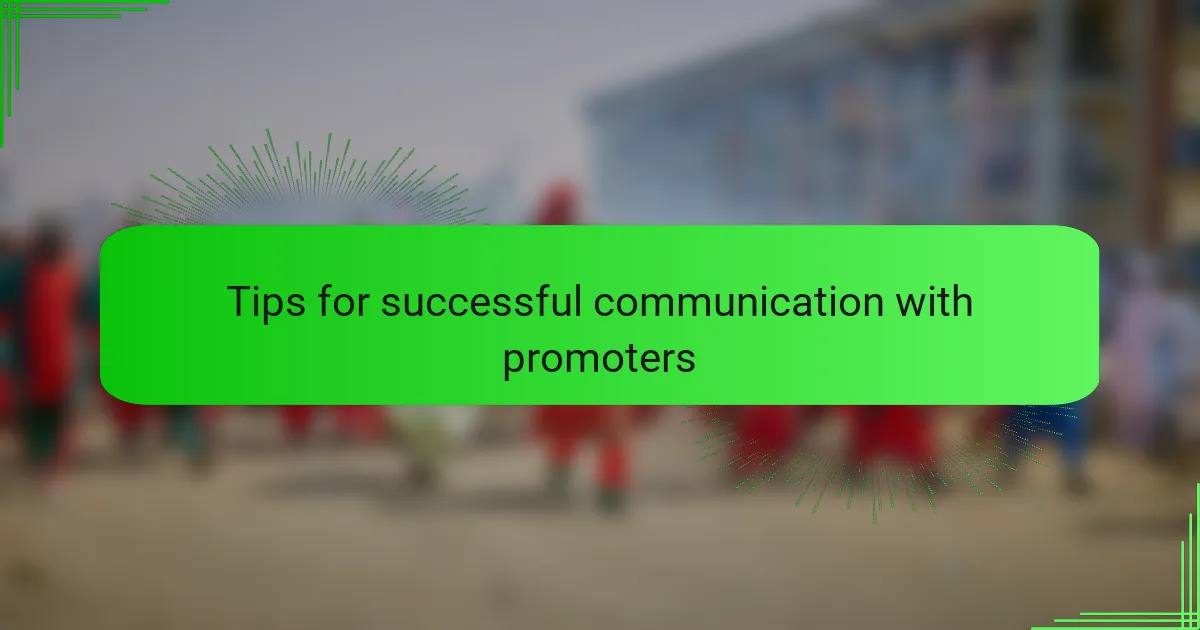
Tips for successful communication with promoters
When communicating with promoters, clarity is key. I learned this firsthand when I followed up on tickets for Margaret Cho. I made sure to have all the details on hand, like the date and venue, so I could ask targeted questions. This not only helped me get the information I needed but also showed the promoter that I was serious and organized.
Additionally, I found that a friendly tone goes a long way. In my experience, conveying enthusiasm about the event helped build rapport with the promoter. They’re more likely to respond positively if they sense your excitement about the performance.
Lastly, timing matters. I always try to follow up at reasonable hours and avoid peak times. After all, promoters often juggle multiple tasks, and a respectful approach can make them more eager to assist.
| Tip | Description |
|---|---|
| Be Clear and Specific | Provide all relevant details to get accurate responses. |
| Maintain a Friendly Tone | Show excitement to build rapport; it makes a difference! |
| Follow Up Respectfully | Timing is crucial; consider the promoter’s schedule. |
